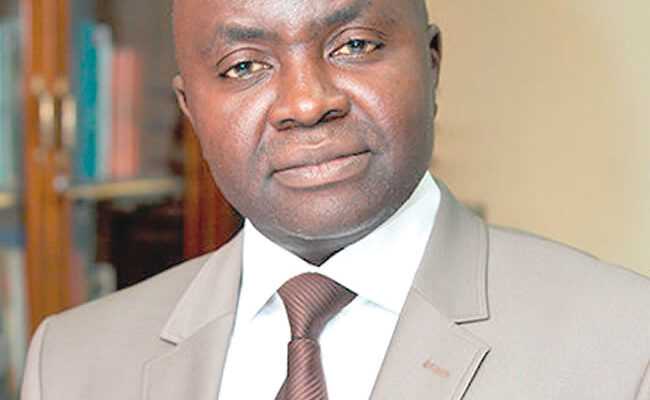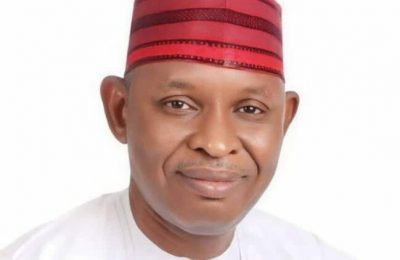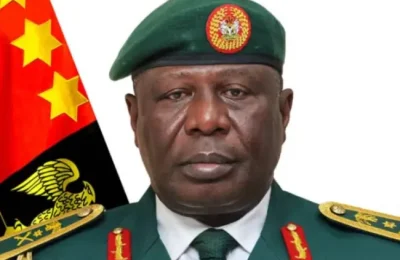
Former Director-General, Lagos Chamber of Commerce and Industry (LCCI) and Chief Executive Officer, Centre for the Promotion of Private Enterprise (CPPE), DrMuda Yusuf, speaks with IMOLEAYO OYEDEYI on the economic burdens the outgoing administration is leaving behind, strategies its successor can employ to address the challenges, among other issues.

As of now, President MuhammaduBuhari’s administration will be leaving a debt burden of about N77 trillion. How do you think the present government got to this point from about N12.12 trillion debt it met in 2015?
Well, the issue is that the government has been spending far beyond its revenue. Yes, we can say some of the contributing factors has been the COVID-19 prevalence which caused a major slowdown in the economy as it affects many sectors, not only in Nigeria but all over the globe. So COVID was a factor. But it happened in 2020. Before then, the government had not been very well committed to what we call fiscal consolidation, which is about ensuring that you boost your revenue and you manage your cost. There was no serious commitment to it. And what that means was that the government was just spending, not minding the limitations it has on the revenue side. And when the money was not available, the government would immediately fall back on the Central Bank to make money available, which was why we got the staggering figures we have with respect to the ways and means of financing by the CBN. So there was no sufficient commitment to expanding revenue and managing the cost of governance. These are two basic issues.
And we all know that the oil and gas sector is a major source of revenue. But we all saw the kind of losses the government was incurring in the sector. First of all, we have the oil theft, which you know, for several years, people have been stealing crude oil. And to the estimates of the GMD NNPCL, the country has been losing about N400 billion every month. And this thing has happened over a number of years. So there has been a major loss of revenue arising from the oil and gas sector because the sector is a major source of revenue even though it may not be contributing so much to the Gross Domestic Product. But it is doing a lot to revenue and our foreign exchange earnings. So failure to manage the oil and gas sector well has been an issue for the outgoing administration. And then, even in the oil and gas sector, apart from oil theft, the environment itself was not conducive for investors, especially the multinationals, who have the capacity to invest and boost our production. So because of problems of insecurity, lack of clarity, and uncertain policies, many oil-producing companies were divested from Nigeria. And they left the country. So, due to insecurity and oil theft, we were not even able to meet our own oil quota requirement. That’s why I said our failure to manage the oil and gas sector well is a major issue.
Another issue has to do with optimising our tax revenue. It is only very few people that are in the tax net. There are quite a lot of billionaires who are not even in the tax net. So the deficiency of our tax system has also been a contributing factor. Our tax today I think it’s about six percent. It is one of the lowest and this is because we have many people in the country that are not paying taxes. So the pressure of taxation is only on a few people who are compliant, especially in the formal sector of the economy. So there is the issue of optimization of the revenue.
And of course, our budgetary process has not been transparent enough when it comes to transparency in the procurement processes. And we have heard all manner of allegations of corruption. Some of our public officials have even been convicted. Some are even in court. Look at the cace of the former Accountant General of the Federation. Look at the number of billions he was allegedly caught with. So corruption has also been an issue.
And then again, the investment environment is very difficult. If you want to grow the economy and you want to grow investments, it is the private sector that will invest, not the public. What the government is expected to do is to facilitate and possibly influence some infrastructure. All other kinds of investment are supposed to be done by private companies across all sectors. But if the environment is not conducive, they will not invest. I just gave an example of those who are investors in the oil and gas sector, many of them have divested. And if there is no investment, there can never be economic growth and revenue. So this is also a contributory factor.
Then, as I have said, the outgoing administration did not manage the cost of governance well and while we are grappling with the revenue problem, the cost of governance was increasing. And there were no deliberate efforts to cut down on the cost of governance. So we have unhealthy bureaucracies, and political appointees that are unworthy. And there were so many political offices and parastatal agencies created with no well-crafted purposes. The government has just been spending money. And once there is no more money to spend in the main revenue stream, the Federal Government will run to the CBN, which is why the ways and means finances roll up to N23 trillion. At the beginning of the current administration, this thing was just about N2 trillion. In fact, as of February, credit to the government from the banking system was about N28 trillion. So all these issues have contributed to where we are at the moment in the economy. I know the present administration often quickly points fingers at the COVID-19 pandemic, but some of the problems have been on the ground before the virus outbreak. The epidemic only worsened the situation because the country’s economy went into recession and this led to an increase in debt profile.
But in what ways will you say the economic management team of the Buhari administration failed in addressing the whole challenges you have outlined?
Well, one of the major policy failures of the present government was the foreign exchange policy, which has been a total mess. And this is because the whole foreign exchange environment became very transactional and not transparent as we had a lot of commission agents, who were making quick money by getting foreign exchange at the official rate and selling it at a parallel market rate. So this creates some kinds of foreign distortion. And whenever there is a huge gap between the official rate and parallel market rates of a product, investors will not come in. And some of them that will eventually come will do that through the back door. So the foreign exchange policy was the first policy failure of the Buhari administration. And both the World Bank, IMF, and Lagos State government have complained about this. Another terrible policy under Buhari’s administration was the naira redesign policy. This one affected everyone, especially the poor people. It caused a whole lot of problems and practically grounded the economy. It took the intervention of the Supreme Court and the labour unions for both the CBN and President Buhari to even listen to people’s cries. That was another major policy failure.
Then, there are issues around our policy on taxation. You see, it is true that we need money, but we should be taxing the right things. The present administration has made too much focus on taxing investors, not necessarily taxing their profits, which is okay. But when you are taxing their inputs and production, it puts a lot of pressure on the investors and it makes it difficult for them to contribute to the economy, either by way of revenue or employment. So the tax policy was also an issue. And then, the trade policy of this administration, which is about import and export, has been too focused on income generation. If you turn to the customs, all they know and care about is how to meet their revenue target. They don’t care what is happening to the investors and job creation. So in the process, the investors suffer a lot.
As regards the issue of fuel subsidy, the incoming administration has expressed readiness to remove the subsidy. Many are of the view that the imminent opening of the Dangote refinery will cushion the effect of the subsidy removal on Nigerians. What is your take on this?
You see, we need to manage expectations around this Dangote refinery. We shouldn’t forget that the refinery is a private investment and it will operate on purely commercial principles. And then, the refinery has creditors and shareholders that it has to pay, both in and out of the country. These people have put their money into the company and will be expecting dividends. So the Dangote Refinery won’t run with any subsidy model. The only difference it can make is if the Federal Government decides to do some swap with the company by giving them some crude oil and taking fuel in exchange to sell to Nigerians at whatever price. That may work. And the only thing that the government will save will be the cost of transportation. In other words, instead of bringing the fuel from Singapore and other countries, the government can get the fuel from Lekki and save on the cost of transportation. But as for the price, I don’t think the company will give any concessionary price, because it will have two options: either to sell the fuel locally or do so abroad. And considering the fact that some of the money he borrows is in dollars, it will have to export some of the products to generate some foreign exchange to clear off some of its foreign debts. So, I don’t think the Dangote refinery will take away the hard effects of the subsidy removal, it will only help to manage the process.
But how do you think the incoming administration can manage the debts and address the economic challenges the Buhari government is leaving behind?
The Nigerian economy is in a stumbling and fragile state and in dire need of a new direction. The current political transition offers a remarkable opportunity to chart a new course. The incoming administration should establish quality economic governance consistent with tested economic principles and empirical evidence and contextualised within socioeconomic peculiarities. This is critical from the onset of the administration for signaling and investors’ confidence. A good economic governance framework would entail setting up a transition committee on the economy to come up with propositions of what needs to be done differently and ensure the delivery of quick wins in the first month of the administration.
It will also require a technically sound economic team to give guidance and direction on general economic policy direction, policy conceptualisation, and urgent reforms.
The Tinubu government should also endeavour to emplace a competitive economic environment with minimum monopoly dominance and expand the role of markets for value delivery and boosting of private enterprise in the economy. Also, there should be robust monitoring and evaluation framework to regularly review the effectiveness and impact of economic policies and regulatory practices. The government must also ensure robust and regular stakeholder engagement by key government agencies to ensure proper alignment of policies with investors’ sentiments. Lastly, the government institutions that play technical roles should be headed by tested technocrats. More importantly, the incoming administration should prioritise macroeconomic stability with an emphasis on moderating inflationary pressures, stabilizing the exchange rate, and boosting economic growth. It should reform the tax regime to ensure efficiency in tax administration, reduce tax evasion and tax avoidance and eliminate multiple taxation.
The government should demonstrate unmistakable commitment to the implementation of the Petroleum Industry Act [PIA]. This would attract more investment into the oil and gas sector. The government should also remove the petrol subsidy in a manner that would inflict minimum shocks to the economy and the citizens.
It has been observed that for the past few weeks and till now, the outgoing government, both at the federal and state levels, has been having this last-minute award of contracts and applications for new loans. Are there any economic implications of these moves?
Concerning the N800 billion loan the outgoing administration is seeking to get, I don’t think it is appropriate to be doing that now. I believe all such things are better left to the incoming administration. This is because at such time as this, what the outgoing government should be doing is preparing its handing-over notes and winding down activities. But the good news is that the World Bank has said that it will not be disbursing any money to the current administration. The processes may be completed, but the disbursement will not take place under the incumbent government. But as for other contracts, you and I know that government is a continuum. So, you can’t shut it down because you are in a transition. If there are regular things that have been in the pipeline, there is nothing wrong with awarding the contracts. When it is not as if once the contract is awarded today, the ministry or contractor will get the money on the same day. The process will definitely continue into the next administration, which will still review the contracts and decide whether to proceed with it or not.
YOU SHOULD NOT MISS THESE HEADLINES FROM NIGERIAN TRIBUNE
May Nigeria never witness another Buhari’s govt — Primate Ayodele
The leader of INRI Evangelical Spiritual Church, Primate Elijah Ayodele has said President Muhammadu Buhari-led Government performed…
‘IDAN’: All you need to know about trending Nigerian street slang
The hashtag ‘Idan’ is the latest Nigerian street slang that has been trending on social media for…
Murphy Afolabi: 7 things you probably don’t know about late Nollywood actor
Nigerian sensational actor and filmmaker, Murphy Afolabi, reportedly died on Sunday, barely 24 hours after…
WEEK BRIEF: 10th NASS’ power tussle, Seun Kuti’s assault on police… other top news
THE ongoing tussle for the principal office positions of the 10th National Assembly by the top members All Progressives Congress (APC) has…
SPOTLIGHT: Dennis Bergkamp, ‘non-flying Dutchman’ blessed with unrivalled skill, technique
Dennis Nicolaas Maria Bergkamp, born on May 10, 1969, in Amsterdam, Netherlands, is widely regarded as one of the…
Ph.D graduation of a Hausa-Yoruba Nigerian in America
Last Saturday, I attended the PhD graduation of a treasured mentee of mine by the name of Abdulbasit Kassim at Rice University in…







